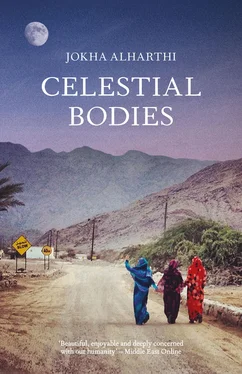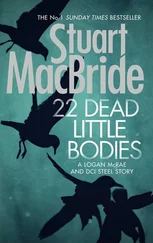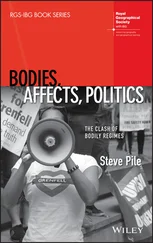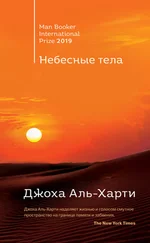I saw her on the day after the Greater Bairam Feast, in the month of Pilgrimage. My father went to pay his respects to her mother, Salima, as was the custom during the important ritual periods, for she was a distant relative of ours. I wasn’t with him but I understood later that he particularly noticed Khawla, the youngest daughter. The next morning he said to me, I want you to go to Azzan’s house for me. I was over there yesterday to give the family our feast day greetings and I left my walking stick there.
Somehow I knew that my father would not forget his walking stick anywhere. That rod was moulded to his hand on the very day he was created. What’s more, I thought, he would not send me off to retrieve it when he could ask one of his retainers to go and get it. As usual though, I didn’t raise these questions with him. I went to Azzan’s home, and at the door I called out, asking permission to go in, letting them know I was there. I walked across the wide courtyard and entered the big room. But it seems Mayya hadn’t realised I was coming in, she hadn’t heard anything or noticed my entrance, and so she hadn’t budged. She was sitting at the far end of the room on a wooden chair, trying to thread the needle on a sewing machine. It was a black Farrasha and she was bent over it, a pale, delicate, mysteriously remote figure. I caught a glimpse of her face and the ache there touched the agony inside me. Her short nose and her cheekbones, indeed her entire face, rose and fell with her intense concentration as she tried to poke the thread through the needle eye. She was leaning so far over the machine that it all but supported her entire body. Hunched over it, her paleness shone out in the daylight and the expression of pain across her small face was unbearable.
Looking hard at me — or perhaps scrutinizing my wandering gaze — her mother said to me, When I find the walking stick I will send it over. I tried hard to concentrate my thoughts on what phrases should be uttered in these circumstances but I couldn’t find the appropriate words.
Salima looked to me like a woman who took charge of matters. She was still known around here as the Bride of the Falaj. Her skin was very light and her figure tended to fullness, accentuated by a round face, clear, smooth skin, an aquiline nose and piercing eyes. It was immediately obvious that Mayya did not take after her at all. I cast a last glance along the long room. I could not believe how much pain was crackling through the air, generated simply by Mayya’s being there. Haloes of light embraced that presence. If I were to just put my hand out, I felt, I could touch those matchless haloes ever so gently. But Salima, ever her mother, suggested strongly, if indirectly, that it was time for me to go home. So I slunk out.
I left the house of Azzan not really understanding what had just taken place or what might be expected to happen next or in the future. A few years before this I had begun to field allusions to my ‘flight’ from girls. I wasn’t fleeing, that wasn’t it at all. But I felt no sense of participation, of presence, in any of it. The racy jokes the maids told and the way their hands wandered now and then onto my body didn’t make me feel particularly loved, and I certainly didn’t feel any desire or fondness towards them. Shanna chased me behind the lemon trees in the farm when I was barely fourteen and fell on me without any advance warning. Feeling dizzy and slightly sick, I pushed her away, spattering her with mud as I did so. She swore up and down that I would pay the price for it. Only a few days later, Zarifa was trying to push me into having sex with one or another daughter of the slave families that had long inhabited my father’s household. These forays were sudden and rude, and completely without emotion. Most of these girls were either too afraid to say no, or they were bent on acquiring some gifts. The whole thing just made me turn more strongly inward. It drove Zarifa mad. She had come to see me and the state she thought I was in as an easy target for men’s wayward desires, not to mention those of boys older than me. She was trying to protect me with whatever wiles she had up her sleeve, but her tricks wounded my young adolescence.
When I saw Mayya, I was beyond all of that. I was nineteen years old. Even so, I didn’t understand what had just hit me on that night.
Zarifa did understand. I remember a particular day, at dawn. I remember the feeling of fullness I had — such happiness and pain together! Mayya’s pale face distracted me utterly, took me far away from my mundane days, and filled me like nothing else had in my short experience of life. For the first time ever, that morning, I found myself pacing through our spacious home with its large rooms that had accumulated over time, one built up against another, and each one opening out onto the next. Yet I felt like the place wasn’t big enough for me. I felt I was carrying something that was both heavy and precious, but at the same time I thought might just be able to take off and fly, because I felt so utterly light in my skin.
The night before — once I made certain that my father was asleep — I had snuck out to the eastern courtyard to sit under the enormous acacia tree where I could give myself up to the beautiful wailing of Suwayd’s oud and his welcome company. The more I asked Suwayd, How did you do it, how did you get this oud? the harder he laughed. Hey, the same way one gets one’s children, Shaykh — it’s all a blessing and a gift from Allah!
For my part, Suwayd’s words seemed to express perfectly my acquisition of the light that broke up the darkness of my days, that gentle fierce light. Was this what people called love? A gift, like the blessed livelihoods God grants to us. Now, I walked out of our house, away from its ornately decorated reception rooms, and I breathed in the blue dawn. I paced the length of the eastern courtyard, bordered by a row of lemon and mango trees punctuated by a single wild native rose bush. I felt such a yearning to sing in exactly the way Suwayd had sung the night before but I couldn’t regulate the quavering rhythms of my voice, so instead I floated in the fragrances of lemon and rose. Somewhere out here had grown the basil bush that my mother had uprooted, and so it had killed her; still, even now, I could almost smell its fragrance. Would my mother have liked Mayya? Might she even have been fond of her? Or would she have exclaimed, as my father would on a later occasion, Oh, but I thought her name was Khawla!
No, Father, I said to him. Khawla is her younger sister. Mayya is the older one.
The older one? he muttered. You mean that skinny dark one? Didn’t you see Khawla? Boy, what’s happened to your eyesight, can’t you tell the pretty sister from the others? Anyway, this Mayya you talk about is older than you. I remember Azzan, her father, parading her around on the feast day once, and the little girl was already walking. And that’s when your mother was pregnant with you.
My voice was hoarse as I tried to answer. Only a year and eight months, Papa! He waved his cane around, the cane he had never once left behind at Azzan’s house.
A few days later I wrote a letter to my father. I opened it in the customary way: In the name of God... followed by the usual stuff: To my dear, esteemed and honourable father... and I rounded it off with my signature: Your servant and son who humbly awaits your kindness, Abdallah. By now I have forgotten exactly what that letter said. My aunt — his sister — may have interceded on my behalf, too, and I know for certain that Zarifa confronted him with my inhibitions and my shamefaced attitude to girls which in her view were completely unwarranted. A few days later, he summoned me into his presence. He told me that he would betroth Mayya to me and would pay her a dowry of two thousand riyals. He would build a new set of rooms onto the eastern courtyard, with a modern bathroom. I would live in this annexe with my bride.
Читать дальше












